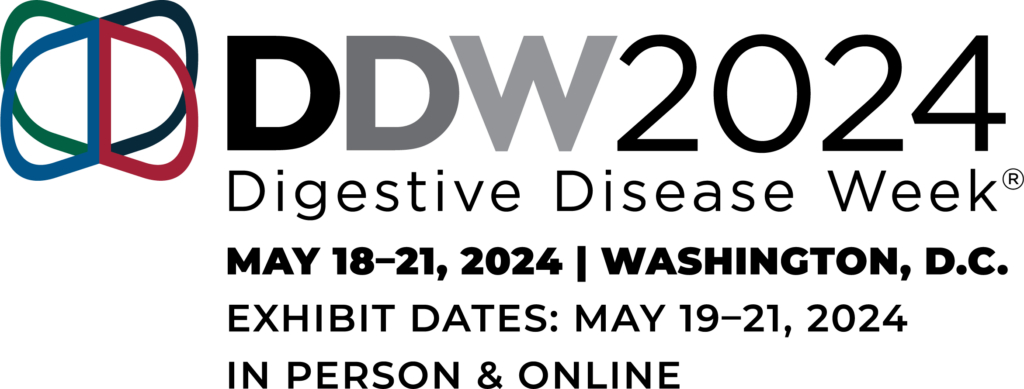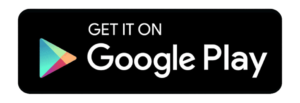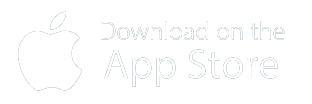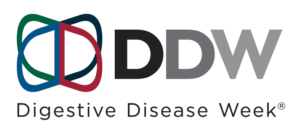It's All About Your Knowledge
At DDW, learning isn’t confined to a lecture hall. It’s woven into every peer-to-peer exchange and dedicated track. A robust, self-driven program lets you take control of your curriculum — and full advantage of education in all its forms. Choose from topical lectures, hands-on workshops, one-on-one knowledge sharing with colleagues and experts, and so much more.
Learn Your Way
DDW features 400 sessions and 4,300 oral abstract and ePoster presentations. Expand the accordions below to learn more about DDW session formats.
Invited-speaker sessions feature some of the most prestigious experts in their fields. Organized by each of the four sponsoring societies, these sessions highlight a wide range of topics that appeal to a broad base of attendees. In program planning resources, invited presentations can be identified by their presentation numbers. Below are examples of invited speaker sessions offered at DDW.
- Address/Oration/Lecture: Sponsored by SSAT, each session is 45 minutes in length generally has one presentation. Q&A time is included in the 45 minutes allotted.
- Board Review Course: This course, sponsored by AGA, serves as a primer for third-year fellows preparing for the board exam, as well as a review course for others wanting to test their knowledge. The course is 240 minutes in length. Attendees are provided with real-time feedback on their readiness to take the board exams. Presentations are 14 minutes (ARS included) with no Q&A.
- Clinical Symposium: Focused on clinical topics and sponsored by one or more of the four societies, these sessions are 90 minutes in length and typically feature three to five speakers with presentations ranging from 15–30 minutes in length, with 15 minutes of Q&A at the end of each session. AGA and ASGE symposia may also include abstract presentations intermixed with invited speaker presentations. SSAT clinical symposia are 90 or 180 minutes long and include 4–5 presentations (8-10 in the 180 minute session), as well as discussions at the end of each session (or each half of the session in the 180 minute session).
- Debate: These SSAT sessions are 60 or 90 minutes long and include 2–3 presentations of 15–20 minutes with a group discussion and Q&A at the end.
- Live Demonstrations: Sponsored by ASGE, these educational demonstrative sessions broadcast clinical endoscopic procedures being performed in endoscopy suites from around the globe. Sessions are 90 minutes in length and feature cases being performed from as many as four units. A panel of moderators provide commentary and discuss approaches to endoscopic management of gastrointestinal diseases. Audience participation with Q&A throughout the session is encouraged.
- Panel: These SSAT sessions are 60 or 90 minutes long and include 4–5 presentations of 15–20 minutes with a group discussion and Q&A at the end.
- Plenary Session: Plenary sessions are offered by all four societies and feature the year’s best abstracts and invited speakers. AGA, ASGE and SSAT feature Presidential Plenary sessions that are 90 minutes. Presentations are typically 15 minutes in length. Presidential Plenary sessions often include a Presidential Address and an award presentation. Q&A time varies for these sessions.
- Research Symposium: These 90-minute sessions focus on basic science topics and are sponsored by one or more of the four societies. These sessions typically feature three to four speakers with presentations ranging from 20–30 minutes in length. AGA symposia may also include abstract presentations intermixed with invited speaker presentations. Presentations are usually 15 minutes with three minutes of Q&A included.
- State-of-the-Art Lecture: Typically 60 minutes in length with five minutes for questions, these sessions feature one keynote speaker on a given topic. State-of-the-Art Lectures are offered by all four sponsoring societies. The Morton I. Grossman State-of-the-Art is 90 minutes in length and includes a 10-minute intro, 60-minute lecture from the award recipient and 20 minutes of question and answer.
- Translational Symposium: These 90-minute sessions focus on translational topics and are sponsored by one or more of the four societies. These sessions typically feature three to four speakers with presentations ranging from 20 to 30 minutes in length. AGA symposia may also include abstract presentations intermixed with invited speaker presentations.
Abstract-based sessions feature new research findings. Abstracts are submitted to the sponsoring societies and peer-reviewed by content experts. All accepted abstracts are published in either Gastroenterology or GIE: Gastrointestinal Endoscopy. Accepted abstracts may be presented in lecture or poster sessions. Below are examples of abstracts-based sessions at DDW.
- Case Reports: Sponsored by ASGE, this category permits fellows and trainees to submit cases (involving five or fewer patients) that have pertinent training points, or that amplify clinical experiences. Examples could include a series of interesting or challenging cases, or a report illustrating an unusual case or variation on a disease that may differ from the traditional textbook information.
- Conference: This invitation-only SSAT session is 8.5 hours long and includes a selection of abstracts, presented by residents and fellows.
- Late-Breaking Abstract Plenary: Sponsored by DDW, these sessions are 90 minutes in length and feature abstracts submitted during the March late-breaking submission period. Typically, there are two sessions — one clinically focused and one basic research focused. Both sessions have presentations that at typically 15 minutes in length, including three minutes of questions and answers.
- Poster Sessions: Sponsored by all four societies, poster sessions take place every day in the Poster Hall from noon–2 p.m. During this time, poster presenters will be at their posters to explain their findings and answer questions.
- Quick Shots: These 60–90-minute sessions are sponsored by SSAT and feature 10–20 presentations. Authors present brief three-minute oral reports on their work, with about three minutes of time allotted for follow-up questions from the audience.
- Research Forum: These sessions are 90 minutes and feature five to six abstract presentations, and often an invited keynote presentation. Presentations are typically 15 minutes with three minutes of questions and answers included. AGA fora may also include invited speaker presentations intermixed with abstract presentations.
- Topic Forum: These sessions are 90 minutes and feature five to six abstract presentations and often an invited keynote presentation. Presentations are typically 15 minutes with three minutes of questions and answers included.
- Video Plenary: These sessions are 90–250 minutes and feature video abstracts submitted to ASGE and SSAT. The number of presentations is determined by the total run time of all the videos. Each video is a different length so presentation and question and answer time varies.
- Walking Poster Tours: Sponsored by AGA, these complimentary walking tours are led by subject matter experts and feature the most significant research presented in various topic areas. Tours last about 1 hour. Each tour will focus on abstracts displayed in the Poster Hall and provide attendees with discussion and networking opportunities with leaders and presenters.
- Breakfast Connections: Sponsored by DDW in collaboration with the sponsoring societies, these 75‐minute sessions held Sunday, Monday and Tuesday provide the opportunity for attendees to interact with speakers in a small‐group setting. AV is available, but formal presentations are not required. These sessions are ticketed, with a special rate for trainees, and includes breakfast. Questions are encouraged throughout the session; therefore there is no preset Q&A time.
- Meet-the-Professor Luncheons: Sponsored by DDW in collaboration with the sponsoring societies, these 75‐minute sessions held Sunday, Monday and Tuesday provide the opportunity for attendees to interact with speakers in a small‐group setting. Questions are encouraged throughout the session; therefore there is no preset Q&A time. These sessions are ticketed and include lunch.
- Postgraduate Course: AGA and ASGE offer the course as their flagship live educational offering and premier CME activity. The Postgraduate Course, is a one day, multi-topic course covering clinical topics. The course is ticketed.
- Postgraduate Course Luncheon Breakout: The breakout sessions are one hour, interactive sessions led by at least one faculty member during the AGA Postgraduate Course.
- Hands-On Workshops: Sponsored by ASGE, these interactive sessions focus on specific procedures and allow participants to test techniques during the session. Sessions are 120–180 minutes in length. Some Hands-On sessions are ticketed, while a few will be on a first come, first served basis.
- Product Theater: Product Theaters are turnkey, 45-minute marketing presentations about a company’s product or services. These sessions do not offer CME credit; rather, they give exhibitors the freedom to create a presentation centered on their company’s products.
- Satellite Symposium: Satellite Symposia provide organizations with a unique opportunity to host educational programs before or after DDW scientific sessions, often offering CME credit to participants.
- Meet the Experts Sessions: Jointly sponsored by the four societies, Meet the Experts sessions are small, interactive and free to attendees. Typically geared toward trainees, attendees are able to meet experts to have questions answered about career choice, contracting or practical issues, etc. The sessions are typically 45 minutes in length and are held in the Trainee and Career Lounge.
- Reception/Special Event: These are sessions or events outside of the traditional DDW session types.
Hear directly from the AASLD, AGA, ASGE and SSAT program chairs to learn about new topics and session types at this year’s meeting. DDW Council Chair Loren Laine, MD, kicks this series off with a personal message.





